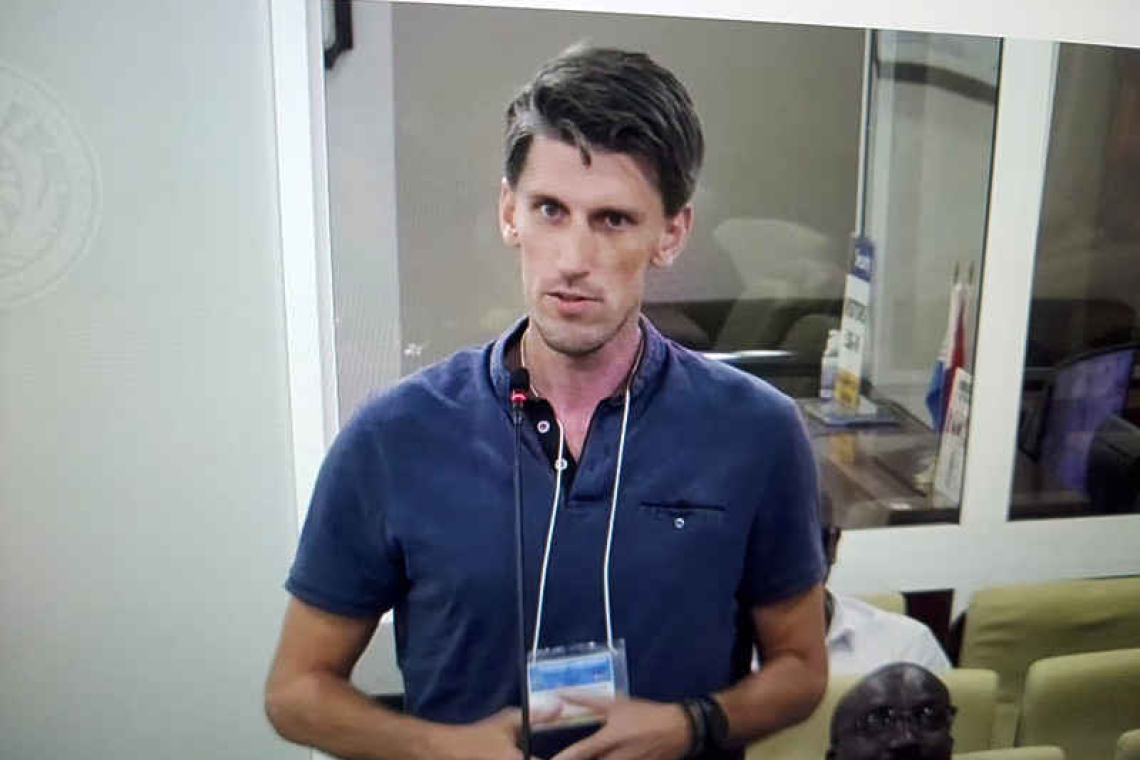MHF social psychiatric nurse and case manager Marcel de Wit addresses Parliament on the subject of suicide in St. Maarten.
PHILIPSBURG--Mental Health Foundation (MHF) social psychiatric nurse and case manager Marcel de Wit, who does crisis interventions at MHF, addressed the rising number of suicide-related calls and the challenges of providing crisis support, during a panel discussion in Parliament on Thursday.
Since the suicide of a young girl late last year there has been an up-tick in the number of calls to the crisis hotline, particularly from students, De Wit said.
“When it comes to depression and suicide, since let’s say October/November when we had a sad fatal suicide of a young girl in St. Peters, we’ve seen on our crisis line also an increase in calls from plenty of young people who also attend the same school or surrounding schools,” he told Members of Parliament (MPs). “I think it’s a sad development, because every week we get these calls and we have to advise, with my colleague, who is a youth psychologist, we have to manage together with the children and the family and the schools, to reduce those depressed feelings and the other topics that they are stressing with.”
He further discussed his role with four case managers who support around 240-250 clients in the community, many of whom need medication, follow-up care, or motivational support.
Each week, calls are also received from the police asking for support in dealing with persons who may be psychotic or under the influence of alcohol or drugs. “Over time, the police’s understanding of mental health issues has improved, thanks to mutual training sessions. These sessions have helped officers learn how to support confused [mental health – Ed.] clients and handle situations involving individuals under the influence of substances. Sharing these experiences has proven to be very helpful in improving collaboration,” he said.
Despite the collaboration, De Wit said that the complex situations often leave both mental health workers and law enforcement exposed to potential danger. He said there are times when their safety is a concern. Clients may become aggressive and that is when the police are asked to intervene. However, they are not always able to restrain the client, which creates tension between the roles.
“There are times when our safety is a concern because the client is confused and might react aggressively and want to attack me as a nurse or family members, and we would ask the police to restrain the client. However, they are not always obligated to hold the client, and then there becomes friction of the responsibilities of both parties – we as mental health professionals and the police.
“That is an ongoing topic that I address, I think, every week, and that is a very important question, because we do not feel safe all the time and the police cannot always, by law, do the things that are needed at that moment, and that is restrain a client with force,” he said.







